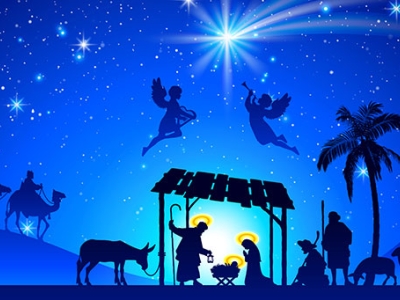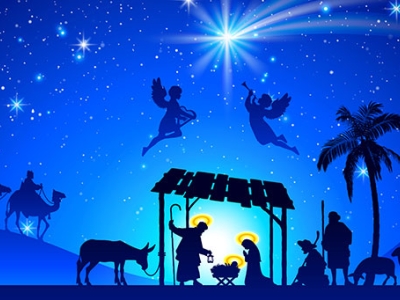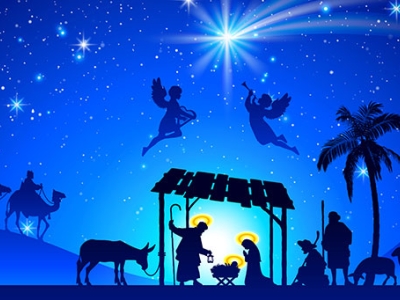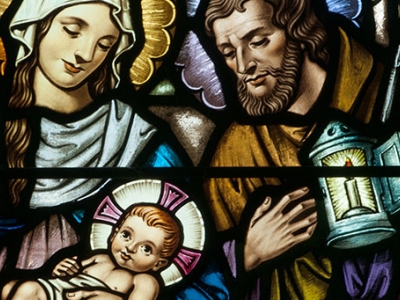
Nativity Notes: Is December 25 really Jesus’ birthday?
A ‘cheat sheet’ for answering kids’ Christmas questions.
You’ve heard it, you’ve probably sung it: ‘Long time ago in Bethlehem, so the Holy Bible say; Mary's boy child, Jesus Christ, was born on Christmas Day’. Or was he? Have your kids ever asked whether December 25 is really Jesus’ birthday?
Around the world, Christians await the arrival of Christmas, a joyous day to celebrate the birth of our Saviour, Jesus. But more than two millennia after Jesus' auspicious arrival, even Christians can't agree on his birthday. In Catholic and Protestant traditions, Christmas is celebrated on December 25, while Orthodox Christians in countries like Russia, Greece and Egypt celebrate Christmas on January 6 or 7. According to historians and biblical scholars, even these traditional dates are debatable.
Why December 25 is unlikely
There are several reasons why December 25 is unlikely to be Jesus’ actual birthday. The gospel accounts, which provide a detailed description of Jesus’ birth—complete with highly specific references to Roman rulers, an empire-wide census, the journey to Bethlehem, the manger setting and the presence of the angels—fail to name a day, month or even a year for Jesus' birth. But there are clues in the biblical accounts which suggest Jesus’ birth occurred at another time of year rather than in December.
Luke’s birth narrative (2:1) begins: ‘In those days Caesar Augustus issued a decree that a census should be taken of the entire Roman world’. Mary and Joseph were required to travel to Bethlehem to participate in the census. Historically, these censuses were not taken in winter, when temperatures often dropped below freezing and roads were in poor condition. Spring (April), with its more temperate weather, would have been a more likely time for a census.
Luke (in 2:8) also refers to shepherds out in the fields nearby, keeping watch over their flocks at night. This also would be more likely to occur in the spring rather than in the dead of winter.
Some scholars have gone so far as to propose a specific date for Jesus's birth—April 17. They base this theory on historical records, astronomical calculations, and the Jewish calendar. According to this theory, Jesus would have been conceived during the Jewish festival of Hanukkah and born nine months later, in mid-April. They argue that astronomical calculations support this theory.
Dr Luke Barnes is an astrophysicist based at Western Sydney University. Speaking on the Undeceptions podcast, he explained: ‘We can trace the night sky backwards in time quite nicely—it’s a fairly simple physics system’.
That’s how astronomer Michael Molnar has come to propose April 17, 6 BC as the likely date of the Nativity, since that date corresponded with the appearance of a new ‘star’ made up of the dawn rising and ‘lunar occultation’ (a special kind of eclipse) of Jupiter (the ‘King’ planet), while it was momentarily stationary in the constellation of Aries (which symbolised Israel in Roman mythology). The Wise Men from the east, who were likely skilled astronomers, would have interpreted these conjunctions as a sign of a royal birth in Judea. At that time, they would have then set off on their pilgrimage to the Holy Land, to worship the newborn King (Matt 2:2) arriving a few months later.
Dr Luke Barnes proposes another explanation for the Bethlehem star: ‘We can go back and work out that there was a triple conjunction of Jupiter and Saturn in about 7 BC. Every now and then, Jupiter and Saturn will look like they’re in a similar place in the night sky—that’s a conjunction. If that happens at the right time of year, not only will they come together, they’ll actually come together three times over the course of a couple of months.’
While these theories are intriguing, they are not universally accepted. There is still much debate among scholars about the exact date of Jesus' birth. Still, the evidence for an April birthday is compelling and adds another layer to our understanding of the life of Jesus.
So why December 25?
The first recorded date of Christmas being celebrated on December 25 was in 336 AD, during the time of the first Christian Roman Emperor, Constantine. It wasn’t until this time—the Christianisation of the Roman Empire—that early Christian theologians began to promote possible dates for Jesus’ birth. Before that the Christian church’s main focus was simply on surviving the persecution they were experiencing for their faith. It was Pope Julius I, Bishop of Rome, who officially declared that the birth of Jesus would be celebrated on the December 25.
The early church had initially been more concerned with establishing the date for Easter. Since Jesus died at Passover, the church could work this out with some level of accuracy using the Jewish calendar. The Western church settled on March 25 and the Eastern church on April 6 for the date of Jesus’ death.
Following a Jewish tradition that the life of a Jewish prophet began and ended on the same day, third-century theologian Sextus Julius Africanus, proposed that March 25 must have been the date of Jesus’ conception (on the day Gabriel appeared to Mary).1 Nine months later would have been December 25 (or January 6 in the Eastern church).
A rival Roman festival?
Prior to the adoption of Christianity as the religion of the Empire, Romans participated in all kinds of pagan festivals. December 25, the Roman winter solstice, did not have any particular religious significance until the reign of Emperor Aurelian beginning in 270 AD.2 At that time, Aurelian promoted the date as the celebration of Sol Invictus, the ‘Birth of the Unconquered Sun’. This holiday not only marked the return of longer days after the winter solstice but also followed the popular Roman festival called the Saturnalia, during which people feasted and exchanged gifts. It was also the birthday of the Indo-European deity Mithra, a god of the sun, light and loyalty, whose cult was growing popular among Roman soldiers at the time.
Since the 17th century, some have speculated that Pope Julius chose December 25 for the date of Christmas in order to reclaim these pagan celebrations. However, the reverse could also be true: Emperor Aurelian, who was hostile to Christianity, seems to have promoted the ‘Birth of the Unconquered Sun’ as a new festival to unify the empire and strengthen traditional Roman religion.3
Does knowing the date matter?
Given the evidence, it seems more than likely that Jesus was born in the spring rather than the winter. However, whether Jesus was born in winter, spring, summer or autumn, the important thing is not the date but the event it commemorates. The birth of Jesus marked the beginning of a new era in human history. It represents the moment when God came to earth to be our Emmanuel: God with us. That event changed the course of human history forever because the baby Jesus grew up. And the adult Jesus completed his purposes for coming to earth by dying and rising again to pay the price for human sin, so those who trust in him can be forgiven and receive the promise of eternal life (John 3:16). While we may never know the exact date of Jesus' birth, we can be confident that it did happen. And that is indeed a cause for great celebration!
---
Footnotes:
1. Andrew Drury, Christmas: How the Gift Was Given (Day One Publications), p. 97.
2. Andrew Drury, Christmas: How the Gift Was Given (Day One Publications), p. 99.
3. Andrew Drury, Christmas: How the Gift Was Given (Day One Publications), p. 101.
---
Aleks Pinter is the minister of Wyong Anglican, an evangelical church on the Central Coast of NSW. He and his wife Susannah have three adult daughters and one son-in-law. In his free time, Aleks likes to lift weights and sing - but not at the same time!

Creative Christmas Kids Talks
Creative Christmas Kids Talks Volume 1 is a collection of downloadable videos, scripts and handy hints to take away the stress of generating ideas for a fresh and engaging presentation to the children and families in your context.
For more articles from Growing Faith, subscribe to our monthly e-newsletter.
To hear about the latest books and resources from Youthworks Media, subscribe here.








